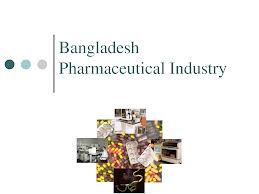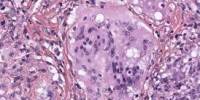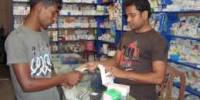1. INTRODUCTION
There are several sectors on which Bangladesh can be proud of and undoubtedly the pharmaceutical sector is one of these sectors, rather it is the sector, which is the second-largest contributor to the government exchequer. There are about 231 companies in this sector and the approximate total market size is about Taka 30,000 million per year of which about 95% of the total requirement of medicines is created by the local companies and the rest 5% is imported. The imported drugs mainly comprise of the cancer drugs, vaccines for viral diseases, hormones etc.
In fact, the real growth of local pharmaceutical industries started after the “Drug Control Act” was promulgated in 1982 in Bangladesh to restrict massive import of drugs and to encourage local manufacturing of the same. A lot of multinational companies (MNCs) became unhappy for this development.
In Bangladesh, pharmaceutical is now one of the fastest growing sectors. In 2004, the total size of the pharma market of Bangladesh was estimated to be Tk. 28,416 Million. With an annual growth rate of about 10%, Bangladesh Pharmaceutical Industry is now heading towards self-sufficiency in meeting the local demand. Bangladesh pharmaceutical industry is the second highest contributor to the national exchequer after garments, and it is the largest white-collar intensive employment sector of the country.
There are about 450 generics registered in Bangladesh. Out of these 450 generics, 117 are in the controlled category i.e. in the essential drug list. The remaining 333 generics are in the decontrolled category, The total number of brands /items that are registered in Bangladesh is currently estimated to be 5,300, while the total number of dosage forms and strengths are 8,300.
Bangladesh pharmaceutical industry is mainly dominated by domestic manufacturers. Of the total pharmaceutical market of Bangladesh, the local companies are enjoying a market share reaching around 80%, while the MNCs are having a market share of 20%. Out of the top ten pharmaceutical companies in Bangladesh, eight are local pharmaceutical companies, while only two are MNCs. The top two domestic manufacturers, namely Square and Beximco Pharma are having a combined market share of about 25% of the total pharmaceutical market of the country.
The Bangladesh Association of Pharmaceutical Industries – BAPI (Bangladesh Aushad Shilpa Samity in Bengali), established in 1972 with just 33 members, has been playing a very vital role for development of this sector. Today, BAPI is a very strong organization having as many as 144 companies (as listed at Annexure-I) as its members.
2. OVERSEAS MARKET
The history of pharmaceutical export from Bangladesh dates back to late 80’s. At that point in time, only one or two pharmaceutical companies of Bangladesh took proactive efforts to initiate export of pharmaceuticals from Bangladesh. Despite the fact that there was no support or incentive from the Govt., these companies with their own initiative started exporting finished formulations to some of the neighboring less regulated overseas markets like Myanmar, Sri Lanka and Nepal.
After being successful in these less-regulated markets, in early 90’s few major companies of this country also took initiative to explore some of the more-regulated markets like Russia, Ukraine, Georgia and Singapore. Success in registering and marketing these products in these countries was a major breakthrough for Bangladesh pharmaceutical industries.
Today, Bangladesh pharmaceutical industry has successfully started exporting its quality products to about 52 countries across four continents. Although volume wise the amount may not appear to be huge, but most importantly it is growing at a very fast pace. Today, Bangladesh is exporting a wide range of pharmaceutical products covering all major therapeutic classes and dosage forms. Beside regular brands, Bangladesh is also exporting high-tech specialized products like Inhalers, Suppositories, Nasal Sprays, Injectables and Infusions. The product quality, packaging and presentation of the products have been highly appreciated in all of the countries of export destination.
3. POST WTO OPPORTUNITIES
1) Export
From January 01, 2005 onwards, huge export opportunities have already been opened for Bangladesh pharmaceutical sector. As a signatory of WTO/ TRIPs, countries like China and India have already implemented ‘Patent Laws’ in their countries and hence, these countries are no longer allowed to export patented drugs from their countries. On the contrary, the situation is just reverse for Bangladesh. As a member of LDCs, Bangladesh has already got the exemption from abiding by the patent laws until January 01, 2016, which is going to open the door to ‘Enormous Export Opportunities’ for the Pharmaceutical Sector of the country. Although, all the 49 LDCs have got this exemption, except Bangladesh all 48 LDCs are basically import based in pharmaceuticals and will not be able to exploit this export opportunity. Bangladesh with its strong manufacturing base in pharmaceuticals is the only country that would really be able to capitalize this opportunity by exporting pharmaceuticals to other LDCs.
Needless to mention that, Bangladesh can also ensure huge value addition by pharmaceutical export since the export price is much higher than the local price. For example, in Bangladesh the price of one fluconazole capsule is Tk. 8 whereas fluconazole is exported to Pakistan at a price of Tk. 38. Similarly, the price of paracetamol syrup in Bangladesh is Tk. 13 but it is exported to Russia at a price of Tk. 100.
2) Compulsory Licensing and Contract Manufacturing
For countries where pharmaceutical patent has come into-effect from January 01, 2005, compulsory licensing is neither a practical nor a feasible option to meet national emergencies. In case of ‘National Emergencies’, it may take 2 to 3 years to get the products through ‘Compulsory Licensing’ because the generic manufacturing company, after getting the permission to manufacture patented products from Drug Authority, have to go through all the processes (e.g. RM sourcing, development-RM procurement, product development, stability studies, commercial RM procurement, production etc.) to introduce the products.
In such situation, Bangladesh could be an ideal candidate having all the manufacturing facilities and well developed formulation R&D that could be utilized for immediate manufacturing of the patented life saving molecule using compulsory licensing.
Bangladesh has all the infrastructure & facilities to be an ideal place for contract manufacturing. It has state-of-the-art manufacturing facilities, highly educated & skilled human resources, sophisticated & cutting edge quality control laboratories. It can manufacture highest quality products conforming to all international standards like British Pharmacopoeia (BP), United States Pharmacopoeia (USP), European Pharmacopoeia (EP) and any other recognized standards.
Equipped with the most advanced technologies & following cGMP standards, Bangladesh Pharmaceutical Industry can cater to any healthcare need of all concerned. Some of the Pharmaceutical manufacturers of Bangladesh have made multimillion dollar investments on new plant and facilities conforming to USFDA standards. They have sufficient production capacity for contract manufacturing. Since Bangladesh has abundant and cheap labor force, the cost of contract manufacturing would be highly favourable compared to any other countries of the world.
3) Joint-Venture Investment Opportunities
Bangladesh has a very big market for Active Pharmaceutical Ingredients (APIs), excipients and intermediates. Although it is self sufficient in formulation drugs meeting 95% of country’s demand it still depends largely on imported bulk drugs. Around 80% of Bangladesh’s total need of API is being met through import. Under TRIPS agreement Bangladesh will enjoy manufacturing patented drugs until 2016. Since most of the countries of the world will not be able to manufacture patented drugs after 2005, there exists an excellent opportunity for foreign investors in bulk drug manufacturing in Bangladesh. They will be able to cater to growing bulk drug need of Bangladesh as well as 49 such other patent exempted countries of the world. Bangladesh would be an excellent place for investors and relocating R&D set-ups for reverse engineering, specially for those countries who will be restricted to manufacture patented drugs after 2005.
Since India and China have very good expertise in API and formulation R&D, they may like to manufacture the APIs outside their countries as they cannot manufacture these ‘patented’ APIs in their countries after 2004.
Because of cost advantage, large pharmaceutical companies of highly regulated markets are now going for joint venture projects. They have already signed several contracts with companies of India and China. Bangladesh also has enormous opportunities to go for joint ventures with these large global companies for manufacturing pharmaceutical finished products.
4. AREAS FOR TAKING IMMEDIATE ACTION
1) Investment in Facility and R&D
As India, China and all present sources of raw materials are signatory of WTO, it is naturally expected that they will not produce raw materials of patented products from 2005 onwards. Even if they do, they will not be allowed to export. Although as an LDC, Bangladesh is allowed to produce patented products, it is unknown where it will get the Raw Materials/APIs to produce these drugs after 2004. Accordingly, Bangladesh need to immediately invest in bulk drug facilities and sophisticated R&D centers. But the market is too small to make this investment a feasible one. In order to make this venture feasible, tax-free import of all machineries and equipments as well as concessional interest rates in taking loan from banks for investment in bulk drug facilities and in R&D Projects are needed.
2) API Industrial Park
In Bangladesh, treatment of both solid and liquid wastes is presently being done by individual manufacturers, which elevates the product cost significantly.
On the other hand, in India and China, there are public /govt. Incinerators and Effluent Treatment Plants (ETP) to dispose off solid and liquid wastes respectively. So, these countries have very successfully reduced their cost of production in pharmaceuticals.
Although Pakistan does not have these export opportunities as revealed by WTO/TRIPs, they are also establishing an Industrial Estate at Lahore, named ‘Sundar Industrial Estate’ comprising 1500 acres of barren land and with combined effluent treatment plant, solid waste disposal system etc.
The cost of Raw Materials /APIs as well as Finished Formulations would have become more competitive in the overseas markets, if Bangladesh also had Incinerators and Effluent Treatment Plants (ETP) in the public sector.
3) Registration Requirement for Imported Products
Most of the countries like India, China and Singapore have already upgraded their registration requirement of imported products for all new-comers which is believed to be almost as stringent as the highly regulated markets. These countries are thereby creating barriers to entry for all substandard drugs. Like these countries, Uganda and Tanzania also have upgraded their registration requirements of imported products though their market is mostly depended on imported products.
On the other hand registration requirement in Bangladesh for imported products is extremely relaxed. If immediate proper attention is not given, there is a possibility that Bangladesh Pharmaceutical Market will be flooded with substandard and spurious products from the neighboring countries. The manufacturing facilities and documentation of small pharmaceutical companies also needed to be upgraded immediately.
4) Independent Drug Testing Laboratory (DTL)
There are two DTL in Bangladesh, one in Dhaka and the other in Chittagong. These two DTLs are always engaged in testing numerous drugs that are being introduced by about 200 pharmaceutical companies operating in the domestic sector. More than that, these facilities are not modern and sophisticated enough to carry out different types of tests as required for export which are becoming more & more stringent day by day.
Considering aforementioned scenario, the pharmaceutical manufactures of Bangladesh have been requesting the Government to provide a land for an independent, modem and sophisticated DTL with the facility of Bio-equivalency testing.
5) Incentives for Export
Since 1990, the Govt. of India has been offering various supports and incentives for export of pharmaceutical finished formulations and APIs. In China, there is huge incentive for pharmaceutical export. On the contrary, in Bangladesh there is no such incentive for pharmaceutical export. As a result, Bangladesh is gradually becoming less competitive in most of the overseas markets where India is operating. Though the Govt. of India was supposed to stop these incentives but in practice they are still continuing with such supports and incentives.
The Bangladesh Association of Pharmaceutical Industries (BAPI) feels that to become competitive in the overseas markets, Bangladesh Government should immediately introduce ‘20% Cash Incentives’ for export of pharmaceutical finished formulations and ‘30% Cash Incentives’ for export of Raw Materials/APIs.
Despite all these tasks in hand, there are huge export opportunities for Bangladesh in the years to come. Till now, Indian and Chinese export of branded generics is significant that may abruptly be ceased immediately from 2005. If the abovementioned issues can be addressed immediately, there is no reason why Bangladesh would not be able to export pharmaceuticals worth Tk. 20000-25000 crore in next few years. The future is enormous, provided that Bangladesh prepares itself to avail the opportunity.
5. GLOBAL PRESENNCE
In early 90’s, few companies took initiatives to export pharmaceuticals from Bangladesh. Because of that pioneering role of these few companies, Bangladesh could fulfill the national aspiration of turning its pharmaceuticals industry into an exporter of quality medicines.
Bangladesh has just started its overseas business operation. As it first move towards internationalization Bangladesh entered few overseas markets with the export of basics chemicals. So far Bangladesh exported its basic chemicals to many countries namely, Iran, Hong Kong, South Korea, Malaysia, Taiwan, Vietnam, Thailand & Nepal.
After being successful in exporting basic chemicals, few leading companies also started registering & exporting their finished formulations in Sixty Two countries namely:
| o Australia
o Afghanistan
o Brazil
o Canada
o Colombia
o Cambodia
o Cosovo
o Djibouti
o Ecuador
o France
o Germany
| o Ghana
o Hungary
o India
o Indonesia
o Japan
o Jordan
o Korea
o Lebanon
o Mexico
o Mozambique
o Myanmar
| o New Zealand
o Netherlands
o Norway
o South Africa
o Spain
o Sweden
o Syria
o Singapore
o Russia
o Tanzania
o Thailand
| o Taiwan
o Togo
o UAE
o USA
o Venezuela
o Zimbabwe
o Ukraine
o Georgia
o Pakistan
o Srilanka
o Vietnam
| o Nepal
o Kenya
o Yemen
o Malaysia
o Iran
o Philippines
o Sudan
o Bhutan
o Hong Kong
|
It is worth that the world renowned hospitals & institutions like KK Women, ChildrenHospital and Raffles Hospital of Singapore, MEDS of Kenya and Zihnnah Hospital of Pakistan are regularly using the pharmaceuticals products of Bangladesh. Today, a large number of Pharmaceuticals manufacturers of Bangladesh like Beximco, Square, Novarties, Opsonin, Acme, Aristopharma, Eskayef, ACI, Renata, Orion, Jayson, Hudosn, etc are involved in export operations.
RECENTY EXPORT OF SOME POTENTIAL PHARMACEUTICALS EXPORTERS OF BANGLADESH
(Value in US$) | ||
Name of the Company | Export | Year of Export |
| Novarties (Bangladesh) Limited | 12,820,162.80 | 2004 ~2005 |
| Beximco Pharmaceuticals Ltd | 1,400,000.00 | 2004 |
| Square Pharmaceuticals Ltd | 1,200,000.00 | 2004 |
| Jams Pharmaceuticals Ltd | 633,721.20 | 2000~2004 |
| Jayson Pharmaceuticals Ltd | 626,546.89 | 2004 |
| The Acme Laboratories Ltd | 600,000.00 | 2004 |
| Eskayef Bangladesh Ltd | 331,876.12 | 2004 |
| Aristopharma Limited | 305,648.34 | July 2004 ~ June 2005 |
| Renata Limited | 281,788.00 | 2004 |
| Navana Pharmaceuticals Limited | 240,175.74 | Sept. 2003 ~ June 2005 |
| Aventis Limited | 223,999.00 | 2004 |
| Advanced Chemical Industries (ACI) Limited | 156,392.00 | 2004 |
| Essential Drugs Company Limited | 124,687.50 | 2004 |
| Globe Pharmaceuticals Limited | 68,410.00 | 2005-2006 |
| Opsonin Pharma Ltd. | 34,109.17 | 2004 |
| Source: Bangladesh Association of Pharmaceutical Industries | ||
6. EXPORT TREND OF PHARMACEUTICALS FROM BANGLADESH
The growth of Pharmaceuticals export from Bangladesh during the period 2003/04 ~ 2000/01 is tremendous. The country witnessed a growth of 83.94% in the Pharmaceuticals export in the Fiscal year 2003/04 compare to the export of fiscal 2000/01. Observer believes that the sector will witness a high steady growth in the coming years because of opportunities provided with the LDC from WTO.
Bangladesh Export of Pharmaceuticals by Destination
| ||||||||
| 2003/04 | 2002/03 | % Change in FY 2003/04 Compare to FY 2002/03 | 2001/02 | % Change in FY 2002/03 Compare to FY 2001/02 | 2000/01 | % Change in FY 2001/02 Compare to FY 2000/01 | ||
| Brazil | 1,883 | 1,333 | 41.26 | 268 | 397.39 | – | ||
| Belgium | 1,254 | – | – | 57 | (100.00) | – | – | |
| Srilanka | 899 | 601 | 49.58 | 427 | 40.75 | 257 | 66.15 | |
| Myanmar | 863 | 639 | 35.05 | 628 | 1.75 | 599 | 4.84 | |
| Spain | 794 | 21 | 3,680.95 | 8 | 162.50 | – | – | |
| Pakistan | 629 | 451 | 39.47 | 759 | (40.58) | 875 | (13.26) | |
| Indonesia | 556 | 207 | 168.60 | 30 | 590.00 | – | – | |
| The Netherlands | 547 | 710 | (22.96) | 178 | 298.88 | 38 | 368.42 | |
| Iran | 439 | 92 | 377.17 | 391 | (76.47) | 167 | 134.13 | |
| Yemen | 412 | 328 | 25.61 | 596 | (44.97) | 489 | 21.88 | |
| Kenya | 356 | 236 | 50.85 | 144 | 63.89 | 90 | 60.00 | |
| PNG | 321 | 13 | 2,369.23 | 13 | – | – | – | |
| Singapore | 276 | 35 | 688.57 | 20 | 75.00 | 1,218 | (98.36) | |
| Finland | 260 | 1 | 25,900 | – | – | – | – | |
| Vietnam | 249 | 243 | 2.47 | 457 | (46.83) | 866 | (47.23) | |
| Germany | 227 | 4 | 5,575 | – | – | – | – | |
| Nepal | 189 | 111 | 70.27 | 145 | (23.45) | 122 | 18.85 | |
| France | 146 | 92 | 58.70 | 23 | 300.00 | – | – | |
| Sweden | 129 | 211 | (38.86) | – | – | – | – | |
| Greece | 127 | 32 | 296.88 | – | – | – | – | |
| Liberia | 127 | – | – | – | – | – | – | |
| South Africa | 126 | 253 | (50.20) | 172 | 47.09 | 171 | 0.58 | |
| Venezuela | 124 | 46 | 169.57 | – | – | 11 | (100.00) | |
| Ukrine | 123 | 252 | (51.19) | 270 | (6.67) | 5 | 5,300.00 | |
| USA | 114 | 296 | (61.49) | 792 | (62.63) | 915 | (13.44) | |
| UK | 111 | 81 | 37.04 | 514 | (84.24) | – | – | |
| Afganistan | 105 | – | – | – | – | – | – | |
| Malaysia | 94 | 59 | 59.32 | 45 | 31.11 | 67 | (32.84) | |
| Hongkong | 84 | 182 | (53.85) | 47 | 287.23 | 40 | 17.50 | |
| Japan | – | 7 | (100.00) | 26 | (73.08) | |||
| Others | 4,416 | 4,664 | (5.32) | 3,260 | 43.07 | 4,475 | (27.15) | |
| Total | 12,692 | 9,046 | 40.31 | 6,602 | 37.02 | 6,900 | (4.32) | |
| Source: EPB | ||||||||
7. EXAMPLES OF A FEW LEADING PHARMACEUTICAL INDUSTRIES IN BANGLADESH
1) Beximco Pharmaceuticals Ltd.
Head Office:
19 Dhanmondi R/A, Road – 7
Dhaka-1205
Tel: 861-9151, 861-9091
Fax: 880-2-861-3888
E-mail: info@bpl.net
Beximco Pharmaceuticals Ltd. (BPL) is a member of the Beximco Group – the largest private sector business conglomerate of Bangladesh, comprising 8 divisions and over 22000 employees. BPL, one of the largest pharmaceutical as well as bulk drug manufacturers of Bangladesh started its journey back in 1980 with manufacturing and marketing of licensee products of Bayer AG, Germany and Upjohn Inc. of USA.
Beximco Pharma is now manufacturing and marketing various types of pharmaceutical finished formulations covering almost all major therapeutic classes, dosage forms and strengths. Currently, BPL is producing and marketing 106 products with 172 strengths. It is into various therapeutic classes, with major emphasis on i) Antibiotics, ii) Antiulcerants and Antacids iii) Cardiovascular Drugs, iv) NSAIDs, v) Analgesics and Antipyretics, vi) Vitamins and Iron Supplements, vii) Antidiabetics, viii) Antifungals, ix) Asthma Prophylactics and Bronchodilators and x) Nasal Decongestant and Anti-inflammatory Drugs.
Apart from producing tablets, capsules, syrups, suspensions, solutions, drops, creams, ointments, gel etc., currently the company is also into specialized products like i) Inhalers, ii) Nasal Sprays and iii) Suppositories.
In addition to local market, BPL’s export activities are there in nineteen countries of three continents- Asia, Europe and Africa. For its outstanding export performance, BPL received Bangladesh’s highest award for export, the National Export Trophy, Gold in 1994-’95. BPL is the first pharmaceutical company in Bangladesh to receive such an award. BPL was also awarded National Export Trophy Gold for two consecutive years 1998-1999 & 1999-2000. BPL is the record three times winner of this national highest recognition for export.
BPL’s commitment is to always offer the best, both in product quality and services to its customers. Quality is the measure of excellence in the field of pharmaceutical products. BPL feels that it has an incalculable social liability of providing safe, efficacious and highest quality drugs. Equipped with the latest & the most advanced state-of-the-art technologies BPL team is committed to serve its customers. Through the highest quality drugs BPL has succeeded in gaining the confidence & trust of doctors & patients all over the country.
BPL has transformed its activities, culture, style and philosophy to meet the demands of the new millennium. Business diversifications that are strategically important for a sustained growth are results of its vision of the future. Several new bulk drug facilities are being developed to backward integrate their high volume products. A USFDA standard multi-million dollar pharmaceutical formulation plant is nearing completion. This would be one of the most modern plants in this region.
2) Square Pharmaceuticals Ltd.
Square Centre
48, Mohakhali C/A Dhaka-1212
Tel: 882-7733, 882-7729-38 Fax: 880-2-885-9704 E-mail: isaac@squaregroup.com
SQUARE today symbolizes a name – a state of mind. But its journey to the growth and prosperity has been no bed of roses. From the inception in 1958, it has today burgeoned into one of the top line conglomerates in Bangladesh. Square Pharmaceuticals Ltd., the flagship company, is holding the strong leadership position in the pharmaceutical industry of Bangladesh since 1985 and is now on its way to becoming a high performance global player.
Square Pharmaceuticals Limited (SPL) is the largest pharmaceutical company in Bangladesh and it has been continuously in the 1st position among all national and multinational companies since 1985. It was established in 1958 and converted into a public limited company in 1991. The sales turnover of SPL was more than Taka 5 Billion (US$ 90 million) with about 15% market share (April 2003 – March 2004) having a growth rate of about 16%.
The formulation plants of Square are producing wide range of dosage forms like –
Tablets | : | (Total Dosage Form = 110 Nos.) |
| Non-Coated (plain, chewable, dispersible, vaginal) | ||
| Coated (sugar coated, film coated, enteric coated) | ||
| Sustained/Extended Released (coated, non – coated) | ||
Capsules | : | (Total Dosage Form = 35 Nos.) |
| Granulated Material filled | ||
| Pellets Filled | ||
Suppositories | : | (Total Dosage Form = 06 Nos.) |
| Suppocire based | ||
Injections | : | (Total Dosage Form = 32 Nos.) |
| Vials containing Dry Powder for Injections | ||
| Small Volume Liquid Parenterals | ||
Liquids | : | (Total Dosage Form = 25 Nos.) |
| Oral Syrups (Sugar based, Non-Sugar based) | ||
| Oral Suspensions | ||
| Topical Liquids | ||
Spray, Drops, Ointment, Cream and Powder | : | (Total Dosage Form = 42 Nos.) |
| Small Volume Sterile Eye & Ear Drops | ||
| Small Volume Nasal Drops & Sprays | ||
| Topical Ointments & Creams | ||
| Topical Antibiotic Powder | ||
Oral Dry Powders | : | (Total Dosage Form = 30 Nos.) |
| Dry Suspensions (Antibiotic & Anti Infectives) | ||
| Dry Syrups (Antibiotics) | ||
Dry Powder Inhalers | : | (Total Dosage Form = 08 Nos.) |
| Partial Filled (Premix) Capsules for Respiratory Tract Application with a Device | ||
Metered Dose Inhalers | : | (Total Dosage Form = 05 Nos.) |
| Pressurized Canisters for Oral use with an Actuator | ||
The Chemical Division of Square started commercial production in 1995. From the year 1997 it started it’s full-fledged production and marketing to all top pharmaceuticals within the country including Aventis Pharma, Novartis Bangladesh Ltd., Glaxo Smith Kline, ACI Ltd., Reckitt & Colman, Beximco Pharmaceuticals Ltd., The Acme Laboratories Ltd, Eskayef Bangladesh Ltd., Opsonin Chemicals, Renata Ltd., Essential Drugs Co. Ltd. etc. with good reputation and loyalty.
Square started exporting finished pharmaceutical formulations since 1987. And it is the pioneer in pharmaceutical export from Bangladesh.
Square offers more than 200 molecules in over 350 formulations, from its 2 WHO GMP-compliant manufacturing plants.
3) The ACME Laboratories Ltd.
Head Office:
46, Satmasjid Road, Dhanmondi
Dhaka-1209
Tel: 811-8692-6
Fax: 880-2-811-3188
E-mail: acmeexpo@bangla.net
The ACME Laboratories Ltd. is the second largest manufacturer and exporter of Human, Herbal and Animal Health Pharmaceutical Products in Bangladesh. Her Certifications include:
















